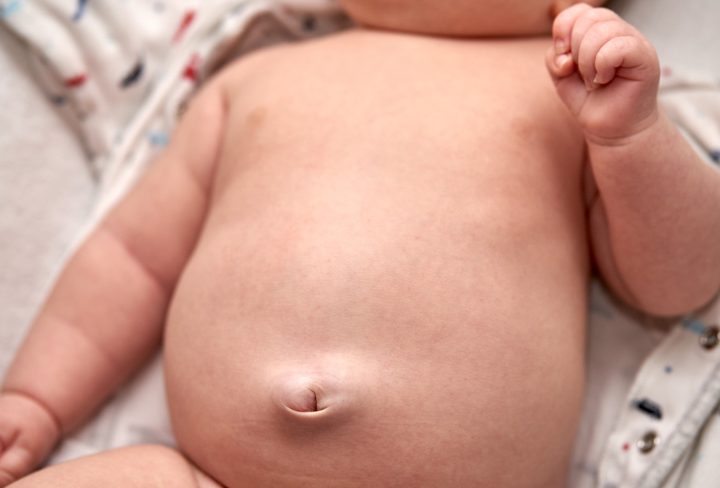What is an Umbilical Hernia?
An umbilical hernia is a common condition, especially in infants. It occurs when a portion of the intestine protrudes through a weak spot in the abdominal wall near the belly button. This weakness is a result of a failure of the abdominal muscles to close completely after birth.
Why Does an Umbilical Hernia Occur?
Congenital Defect: In most cases, umbilical hernias are congenital, meaning they are present at birth.
Increased Abdominal Pressure: Conditions like chronic constipation, persistent coughing, or frequent straining can increase pressure on the abdominal wall, leading to hernia development.
What are the Symptoms of an Umbilical Hernia?
Bulge Near the Belly Button: A noticeable bulge, especially when the baby cries, coughs, or strains.
Pain: Usually, umbilical hernias are painless. However, severe hernias may cause discomfort or pain.
When to Seek Medical Attention?
While most umbilical hernias in infants resolve on their own by the age of 3-4 years, it is essential to consult your doctor if you notice the following:
- A rapidly enlarging hernia
- Persistent pain or discomfort
- Vomiting or difficulty passing stool
- Redness or swelling around the hernia
Treatment for Umbilical Hernia
In most cases, umbilical hernias in infants heal spontaneously without any intervention. However, if the hernia persists beyond the age of 4 or causes significant discomfort, surgical repair may be necessary.
Surgical Repair
Hernioplasty: A surgical procedure to repair the hernia.
Minimal Invasive Surgery: In some cases, minimally invasive techniques like laparoscopy may be used.
Preventing Umbilical Hernias
While there’s no definitive way to prevent umbilical hernias, certain measures can help reduce the risk:
Gentle Handling of Infants: Avoid excessive pulling or lifting of infants.
Managing Constipation: Ensure regular bowel movements to prevent straining.
Treating Chronic Cough: Address underlying conditions causing persistent coughing.
If you have any concerns about an umbilical hernia, it is important to consult your doctor for an accurate diagnosis and appropriate treatment. Early intervention can help prevent complications and ensure a healthy outcome.


